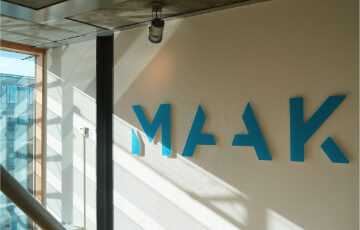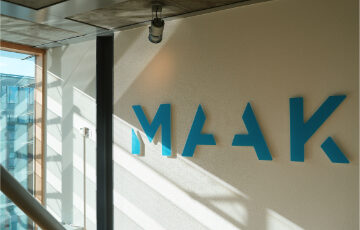
The Netherlands is a vibrant hub of international business and commerce, and collaboration agreements are an important part of that success. As a Dutch contract lawyer, it’s my job to ensure these agreements follow the rules set forth by Dutch law. In this article, I’ll explain what goes into a successful collaboration agreement in the Netherlands so all parties involved can rest assured their interests will be protected.
What is a collaboration agreement?
A collaboration agreement outlines how two or more businesses will work together on one project or venture. It also includes details such as each party’s obligations and responsibilities, as well as rights regarding ownership of property related to the project or venture. Furthermore, any disputes arising from the collaboration must be addressed by arbitration or civil litigation.
Finally, the most important element of any collaboration agreement is its enforceability under Dutch law. This means that should any issues arise between partners during or after the completion of the project or venture, they can rely upon Dutch courts to uphold their contractual rights. With proper legal guidance and attention to detail, both parties can enter into a secure and mutually beneficial collaboration agreement with confidence. As an experienced contract lawyer in Holland, I am happy to explain the most relevant aspects.
Overview Of collaboration Agreements under dutch law
Collaboration agreements in the Netherlands are like a carefully constructed jigsaw puzzle. When all of the pieces fit together, they create a cohesive document that governs how business partners can interact and benefit from each other’s services. Understanding the types of collaboration agreements available in the Netherlands and knowing what is essential for creating an effective one can help ensure success.
A Dutch Collaboration Agreement typically includes two parties: the collaborator and the collaborating party. This type of contract outlines both parties’ responsibilities as well as any financial arrangements between them. It also clarifies ownership rights over ideas or products created through their partnership. The key elements of this type of agreement include outlining roles, specifying terms of payment, agreeing on confidentiality clauses, setting out conflict resolution procedures, and regulating intellectual property rights.
When drafting a Collaboration Agreement in the Netherlands, it is important to consider several factors such as taxation laws, liability issues, copyright protection needs, and dispute resolution mechanisms. To be legally binding, these documents must meet certain requirements established by Dutch law; otherwise, they will not hold up in court if challenged by either side. With clear guidance and attention to detail when creating a collaboration agreement in the Netherlands, businesses can look forward to successful partnerships with minimal legal risks involved. Skilfully navigating these waters leads to mutual benefits derived from working together towards common goals.
Requirements For a Valid Collaboration Agreement
When forming a collaboration agreement in the Netherlands, there are certain legal requirements that must be met to ensure its validity. This includes documenting the agreement and negotiating the terms of the Dutch contract. The parties should consider their respective positions before signing an agreement and take into account any potential risks associated with entering into such an arrangement.
From a legal perspective, it is important for both parties to understand the implications of what they are agreeing to by writing out the collaboration agreement in detail. This ensures all stakeholders involved know exactly what responsibilities each party has and what benefits each expects from participating in this type of partnership. Additionally, it is necessary to specify how long the collaboration will last for as well as outline any dispute resolution procedures if needed. It is beneficial to have a lawyer review the document prior to signing or submitting it for approval.
The negotiation process also plays an integral role in creating a valid collaboration agreement in the Netherlands. Both parties need to negotiate terms so that both sides benefit from their involvement while protecting themselves against unforeseen circumstances. Negotiation can include financial compensation, duration of commitment, division of labor, access rights and other considerations depending on the nature of the project. By properly evaluating and understanding these factors beforehand, both parties can create an effective collaborative relationship with minimal risk when forming a collaboration agreement in the Netherlands.
By successfully meeting all legal requirements and adequately documenting and negotiating all aspects of their collaborative venture, two entities may enter into a mutually beneficial partnership under Dutch law with confidence that their interests are protected throughout its duration.
Negotiating Terms Of a Dutch Collaborative Contract
Negotiating the terms of a collaborative contract in the Netherlands is like navigating through an intricate web; one must be careful to thread between all legal obligations and potential pitfalls. As Dutch contract attorneys, it is our duty to ensure that both parties are kept safe from any unforeseen obstacles while reaching an agreement for business collaboration. We do this by making sure every aspect of the contract adheres to local regulations and laws, as well as compliance with international aspects of collaboration agreements.
The details of a working together agreement can often vary widely depending on what type of business venture is being pursued. It’s important to take into account specific needs such as product delivery dates, financial responsibilities, quality control measures, and dispute resolution processes when entering into a business collaboration contract in the Netherlands. Furthermore, we recommend including clauses regarding liability limitations or contractual warranty provisions if applicable.
We also urge clients to consider allocating resources for ongoing maintenance requirements after signing off on the initial contractual document. Doing so helps identify any areas where further negotiation may be necessary during the duration of the agreement. With these preparations made beforehand, you will have more time available to focus on other important matters related to your business cooperation activities.
In order to make sure each party understands their rights and duties in relation to the collaborative effort at hand, clear communication should always remain paramount throughout negotiations and beyond. By keeping lines of dialogue open between involved stakeholders, we can help create a secure environment conducive for successful collaborations within the Netherlands and abroad.
International Aspects Of Agreements under Dutch law
The Netherlands is a highly sought after location for international collaboration agreements. Such agreements involve the participation of multiple parties from different countries, and require careful consideration of legal requirements in each jurisdiction. When entering into a multilateral collaboration agreement with participants in the Netherlands, it is essential to be aware of the particularities regarding such contracts under Dutch law.
In order to ensure that all sides are properly protected, special attention must be paid to topics such as governing laws, dispute resolution mechanisms, intellectual property rights and warranties. Furthermore, there may also be additional obligations imposed by local regulations or industry standards which must not be overlooked when drafting an international agreement involving entities in the Netherlands.
Given its importance for successful collaborations across borders, it is essential to understand the key legal aspects of setting up a collaboration agreement in the Netherlands prior to any negotiations taking place. Doing so will help minimize potential risks and maximize opportunities for all involved parties. Consequently, suitable advice should always be sought before engaging in any type of collaborative venture between two or more entities based outside The Netherlands. With this knowledge at hand, one can move forward confidently towards achieving their desired objectives through effective collaboration agreements.
Legal Implications Of Collaboration Contracts in the Netherlands
It is commonly accepted that a collaboration agreement in the Netherlands must be legally enforceable and include certain provisions to be valid. The legal implications of such agreements are vast, with all parties having different duties and responsibilities under Dutch law.
- First and foremost, it is important to consider the liability and indemnification issues associated with a collaboration contract.
- Secondly, those involved should also take into account what happens if one party fails to fulfill their contractual obligations or breaches the terms of the agreement – this could result in financial penalties for both parties or even court action being taken against them in some cases.
- Thirdly, fiduciary duties and responsibilities must also be considered when entering into any kind of collaboration agreement in the Netherlands; these can range from ensuring confidentiality clauses are adhered to by both sides, providing accurate information about each other’s roles within the project or venture and taking measures to protect intellectual property rights etcetera.
- Finally, managing risk factors is essential as there may be unforeseen consequences when engaging in joint ventures which could have serious repercussions on all parties involved unless appropriate precautions are taken beforehand.
The above points highlight why understanding the legal implications of a collaboration contract is key before signing any documents; failure to do so can lead to disputes between partners down the line which can prove costly financially as well as damaging reputations over time. Therefore, investing effort into exploring potential risks early-on will ultimately pay dividends further along the road.
Fiduciary Duties And Responsibilities In A Collaboration Agreement
Having discussed the legal implications of collaboration contracts, it is now important to discuss fiduciary duties and responsibilities in a collaboration agreement. This section will focus on the Netherlands as an example for understanding how such agreements function.
It is essential that all parties involved understand their respective duties before signing a collaboration agreement in order to avoid any potential disputes arising from misinterpretations or misunderstandings. In general, both parties need to exercise good faith when fulfilling their contractual obligations under the terms of the collaboration agreement.
Furthermore, any dispute regarding this type of arrangement should be addressed through discussion between the two parties and if necessary, involving third-party arbitration services or court proceedings.
In addition to these primary considerations, there are many regulatory guidelines and restrictions which must also be taken into account when drafting a Dutch Collaboration Agreement. These include rules concerning competition law, intellectual property protection, data protection legislation and consumer protection regulations among others. It is therefore highly recommended that professional advice is sought prior to entering into such an agreement so as to ensure compliance with all applicable laws and regulations governing collaborations agreements in the Netherlands.
Guidelines For Drafting a Dutch Collaboration Agreement
Although the process of preparing a Dutch Collaboration Agreement can be intimidating, having a thorough understanding of the regulations and guidelines is essential for successful collaboration. To ensure that all parties are protected and that legal obligations are fulfilled, here are two key considerations when drafting such an agreement:
- Legal Requirements
- All agreements must comply with applicable laws in the Netherlands
- All contracts should include clauses defining liabilities to each party involved in case of non-compliance or breach of contract
- Document Content
- Include specific details about project objectives and expectations from both sides
- Identify potential risks associated with the project and how they will be managed by both parties
By taking these steps into account during the preparation stage, it gives you greater clarity on what needs to be included in your document. Furthermore, by specifying duties and responsibilities clearly, you can avoid any issues arising further down the line. With this knowledge in hand, we now move onto examining liabilities, rights and benefits in a collaborative law contract.
Liabilities, Rights And Benefits In a Collaborative Law Contract
In a collaborative law contract in the Netherlands, all parties involved in the agreement must be aware of their respective liabilities, rights and benefits. In the Netherlands, these can be documented through an explicit collaboration agreement that outlines each party’s responsibilities as well as any potential rewards or penalties associated with them. This document should also include provisions for resolving disputes arising from the collaboration agreement. These may include arbitration clauses and mediation procedures to ensure that any disagreements are solved quickly and amicably.
The benefits of entering into a collaboration agreement vary depending on the type of project being undertaken. For example, if two companies enter into such an arrangement, they might benefit from shared resources and expertise which could lead to increased efficiency and cost savings without sacrificing quality. Additionally, collaborating on projects could provide access to new markets or improved customer service due to closer cooperation between partners.
It is important for both parties to negotiate a fair balance of liabilities, rights and benefits when drafting the terms of a collaborative contract. The parties should take care not to overlook any potential risks or opportunities that either side may face during the course of their partnership so that they can make informed decisions about how best to proceed with their venture. Documenting the terms of a collaborative contract will help ensure that all obligations are met while protecting everyone’s interests throughout the duration of the agreement.
Documenting The Terms Of a Collaborative Contract
When drafting a collaborative agreement in the Netherlands, it is important to document all of the terms that will be agreed upon. For example, when two Dutch universities collaborated on a research project they specified who was responsible for what activities and who had access to which resources. This ensured that both parties were aware of their obligations and responsibilities. In accordance with Dutch law, collaboration agreements should include clear termination clauses so that either party can end the arrangement without confusion or ambiguity. Additionally, any applicable laws must be taken into account throughout the duration of the agreement.
The next step is to ensure that all aspects of the agreement are properly documented within its language. If there are any discrepancies between what has been discussed verbally and what is written down, then these need to be clarified before signature. All financial arrangements should also be clearly outlined in order to avoid any misunderstandings later on. It may also be beneficial to have an independent third party review the contract before signing off on it as this provides added assurance that everything has been considered correctly.
Finally, once all details have been successfully included in a comprehensive legal document and signed by both parties involved, it’s time to move forward with strategies for effective collaboration agreements in The Netherlands.
Strategies For Effective Collaboration Agreements In The Netherlands
When it comes to crafting a successful collaboration agreement in the Netherlands, there are certain strategies that should be employed. Collaborative law in the Netherlands is governed by specific regulations which must be taken into account when drafting an agreement, for example in Book 6 of the Dutch Civil Code (“Burgerlijk Wetboek”). The most important of these rules is that all parties involved must agree to negotiate and remain committed throughout the process. In addition, each party must have access to legal advice from independent attorneys, as well as access to relevant documents and information.
It’s also critical for parties creating a collaborative agreement in the Netherlands to consider dispute resolution procedures before signing any documents. This will ensure that if problems arise during negotiations, both sides can come together and work through them quickly and amicably. Furthermore, Dutch courts may require businesses engaging in such agreements to submit additional documentation or provide further evidence prior to litigation proceedings being initiated.
Finally, language used within the contract should be precise and unambiguous so there is no confusion about what was agreed upon between parties. All terms should be set out clearly at the outset with particular attention paid to any applicable laws or clauses governing conduct or procedure related to resolving disputes between parties down the line. With careful preparation and planning using these strategies in mind, negotiation of a successful collaboration agreement in the Netherlands becomes much easier for all involved. Now let us move on to discuss dispute resolution procedures in a Dutch collaborative law contract.
Dispute Resolution Procedures In a Dutch Law Contract
The purpose of dispute resolution procedures in a Dutch Collaborative Law Contract is to provide an efficient and effective method for resolving disagreements between parties. In order to ensure that the process works smoothly, it is important that both parties are aware of their rights and obligations under the contract.
Disputes should be resolved through informal discussions between the two parties before resorting to more formal methods such as arbitration or court proceedings in the Netherlands. Negotiations must be conducted in good faith with each side willing to listen to and consider the views of the other. If negotiations fail, then either party may initiate mediation or arbitration depending on what has been agreed upon in advance within the contract. Having a clear understanding of these processes will help avoid costly litigation proceedings and aid all parties in finding an amicable solution quickly.
Ultimately, disputes should not put any strain on business relationships and can often be settled without going to court if handled properly from start to finish. Therefore, having a comprehensive dispute resolution procedure set out clearly within a collaborative law contract helps protect both sides’ interests while providing an avenue for swift and satisfactory outcomes. With this knowledge at hand, we now move onto examining compliance with terms outlined within a Dutch collaborative law contract.
Compliance With The Terms Of a Dutch Law Contract
In order to ensure that the terms of a collaborative law contract are kept, both parties must comply with all applicable laws and regulations. All contractual agreements should be clearly understood by both sides before signing or agreeing to any documents. Furthermore, it is important for each party to maintain full disclosure when entering into a contract. This means disclosing any relevant information that could affect the outcome of the agreement.
To ensure compliance with Dutch Collaborative Law Contract:
- Each party must agree in writing on all aspects of the contract
- Both parties must abide by their legal obligations at all times
- Any changes or amendments made to the original document must be agreed upon by both parties prior to being implemented
- The contract should include provisions for dispute resolution in case problems arise during its implementation
It is also essential that any financial arrangements outlined within a collaborative law contract are fair and equitable for both parties. In addition, the rights and responsibilities of each party should be detailed in full detail so there can be no misunderstandings down the line. It is always recommended that an experienced lawyer review collaborative law contracts before they are signed off on. A written copy of all agreements should also be retained as proof of understanding between two contracting entities. This ensures that everyone involved abides by what was initially agreed upon and avoids future disputes or confusion.
Breach Of Contract And Terminating An Agreement
Recent studies have shown that up to one third of all contracts in the Netherlands are breached. It is essential for both parties involved in a collaborative agreement to understand their rights and obligations under Dutch law should either party breach the terms of the contract. In this section, we will address what constitutes a breach of contract and how an agreement can be terminated due to such breaches.
A breach of contract occurs when one or more of the agreed-upon conditions in a collaboration agreement are not fulfilled within the specified timeframe by either party. If a party fails to meet its contractual duties, then they may be held liable for damages resulting from the breach. When determining if there has been a breach, it is important to consider whether any extenuating circumstances may have contributed to the failure on behalf of either party.
Upon discovering a breach, each party must take steps necessary to mitigate any losses suffered as a result of said breach. This could include seeking remedies through negotiation or court action such as injunctions or specific performance orders. If negotiations do not resolve the issue, then termination proceedings may need to be initiated according to Dutch laws governing collaborative agreements. With these considerations in mind, we now turn our attention towards preparing for enforcing the terms of a Dutch collaborative law contract.
Enforcing The Terms Of a Dutch Law Contract
Preparing for enforcing the terms of a Netherlands contract requires careful consideration. Before entering into an agreement, parties must consider their rights and obligations under the contract. This section outlines important steps to take when preparing to enforce the terms of a Collaborative Law Contract in the Netherlands.
| Steps | Explanation |
|---|---|
| Investigate Applicable Laws | Investigating applicable laws is necessary to ensure that all relevant legal requirements are met. The specifics depend on the nature of the collaboration agreement. The most relevant law is the Dutch Civil Code (Book 6) and (for litigation matters) the Dutch Procedural Code (Wetboek van Burgerlijke Rechtsvordering). |
| Draft Agreement Appropriately | All agreements under Dutch law should include specific clauses regarding rights and responsibilities of each party as well as dispute resolution procedures. It is best practice to use language that both parties understand and agree upon before signing any document. Please be advised that Dutch law is also bound by the rules of reasonableness and fairness (in Dutch: “redelijkheid en billijkheid”) |
| Obtain Legal Advice | To ensure compliance with local laws, it may be beneficial to obtain legal advice from an experienced Dutch attorney who specializes in Dutch law. This will help protect both parties’ interests throughout the process of negotiating and executing a collaborative agreement. Our lawyers are all admitted to the Dutch Bar and are specialist lawyers for contract law. |
| Receive Signatures by Both Parties | After drafting an agreement, signatories must provide written consent via signatures prior to implementation or enforcement of its terms. For certain types of contracts, additional formalities may need to be observed such as notarization or registration at a civil-law notary office. An oral agreement in the Netherlands is binding too but will come with evidence challenges at a certain point. |
| Monitor Performance & Compliance | Once signed, it is essential for parties involved in a collaborative agreement to monitor performance and compliance closely throughout its duration. If either party fails to meet their contractual duties, appropriate measures can be taken without delay accordingly. |
By following these steps carefully when creating and enforcing a Dutch Law Contract, parties can maximize their chances of achieving successful outcomes while avoiding potential pitfalls associated with such agreements. It is also important for both sides to have full understanding of all related risks before committing themselves legally and financially. With this information at hand, one can proceed confidently towards reaching mutually beneficial arrangements through effective collaboration that complies with Dutch regulations.
Frequently Asked Questions
How Much Does It Cost To Set Up a Collaboration Agreement In The Netherlands?
Setting up a collaboration agreement in the Netherlands can be complex, and it’s important to understand the costs involved. We’ll explore what you need to consider when budgeting for such an agreement. We’ll look at different factors that could affect the cost of setting one up, as well as provide some tips on how to keep costs down.
First off, let’s discuss the legal fees associated with setting up a collaboration agreement in the Netherlands. Depending on whether you’re working with an attorney or not, these fees can vary. An experienced lawyer will usually charge more than someone who is less familiar with Dutch contract law. Additionally, any customizations or amendments made to a pre-existing template may also incur additional charges.
Secondly, if you are looking to set up a collaborative venture between two entities based outside the Netherlands, then there may be additional expenses due to translation services required for foreign language documents.
Is There Any Legal Support Available To Help Me Draft a Collaboration Agreement?
Forming a collaboration agreement in the Netherlands comes with its own unique set of challenges and complexities, one of which is finding legal support to help draft an effective contract. To this end, companies should look no further than Dutch contract attorneys for assistance. Like a lighthouse on a stormy sea, they provide invaluable guidance when navigating through murky waters.
The first step towards setting up a successful collaboration agreement is understanding the importance of having a Dutch attorney for contract law review your work before signing any documents. By doing so, you can be sure that all parties involved are legally bound by the terms laid out within it; protecting both their interests now and into the future. Having somebody experienced in law review every document also ensures that nothing slips through the cracks during negotiations – something that could prove costly down the line if not addressed properly at the outset.
It’s important to note that although Dutch lawyers will often charge fees for their services, these costs pale in comparison to what could happen if mistakes were made during the drafting process or legal advice was ignored altogether. Plus, many firms offer discounted rates for those just starting out in business who may not have access to large budgets right away. Ultimately, investing time and money into getting expert counsel from qualified professionals pays off handsomely in terms of peace of mind and security down the road.
Not only does taking advantage of legal support reduce risk while forming a collaboration agreement but it also helps protect against ambiguity and potential miscommunication between partners later on – something that could potentially derail even the best laid plans. So don’t take chances when creating such an important document: seek professional guidance from knowledgeable experts today!
How Long Does It Take To Create a Dutch agreement?
Creating a legally binding collaboration agreement in the Netherlands is not always a swift process. A number of considerations must be taken into account when drafting such an agreement, which can take time to address and resolve. As such, it’s important for those considering entering this kind of arrangement to understand what goes into creating such documents and how long they may need to prepare before signing on the dotted line.
To begin with, it is essential that all parties have a full understanding of each other’s roles within the collaboration as well as their respective rights and responsibilities. This requires clear communication between both sides and typically takes some back-and-forth discussion in order to finalise details prior to formalising the terms of the agreement. Additionally, local laws must also be considered when completing such agreements; these will vary from country to country but should always be taken note of when drawing up contracts.
Finally, once all points have been discussed and agreed upon, it usually only takes a few days for an attorney or lawyer to draft up the required paperwork. However, depending on complexity or any additional legal requirements necessary due to local regulations, this timeframe could potentially extend further:
- Ensuring mutual understanding of roles & responsibilities
- Taking relevant local laws into account
- Drafting contractual paperwork by qualified professionals
It is wise therefore for those looking at establishing a collaboration agreement in the Netherlands – or anywhere else – to factor in sufficient lead time ahead of making any commitments so that everything can be properly arranged beforehand.
Are There Any Specific Rules That Must Be Followed When Entering Into A Collaboration Agreement In The Netherlands?
Forging a collaboration agreement in the Netherlands can be daunting, but with a proper understanding of its rules and regulations, parties are sure to reap the rewards. Like a ship navigating through choppy waters, one must have an experienced captain at its helm if success is to be reached. This article will guide you through some of the specific rules that need to be followed when entering into such agreements in this country.
To begin with, it’s important for both sides to fully understand what type of contractual arrangement they’re getting themselves into. The Dutch Civil Code (Burgerlijk Wetboek) states that there must be mutual consent between all involved parties before any contract is formed. Furthermore, both parties should specify exactly which rights and obligations each member has under the terms of the agreement – so make sure these are clearly laid out.
Finally, while there may or may not be tax implications depending on the specifics of your situation; it is wise practice to consult with a legal professional who specializes in contract law if you’re unsure about anything relating to taxation.
Conclusion
As a Dutch contract attorney, I understand the importance of entering into a collaboration agreement that is legally binding and beneficial to all parties involved. Collaboration agreements under Dutch law can be complex documents with plenty of legal implications, so it’s important to acquire professional help when drafting such an agreement in the Netherlands.
The cost of setting up a collaboration agreement in the Netherlands varies depending on the complexity of the venture and any additional resources or services you require. With this in mind, make sure you know what costs are associated before beginning the process. Additionally, there may also be tax implications that must be considered during negotiations and prior to signing off on any final agreement.
As your attorney, I’m here to guide you through every step of this process – so don’t hesitate to contact me should you have any further questions about creating a successful collaboration agreement in the Netherlands.







